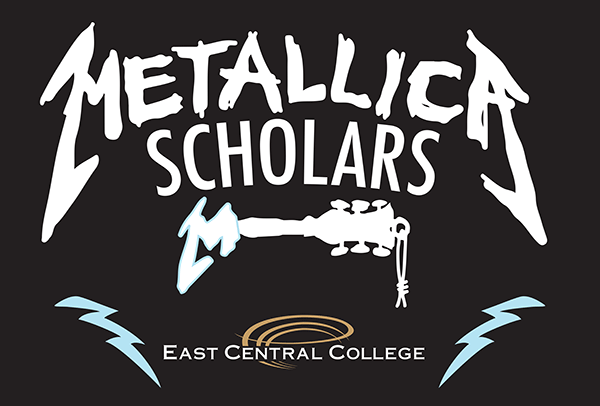Industrial Engineering Technology
- Mission Statement
- Degrees & Certificates
- Additional Information
- Courses
The Industrial Engineering Technology program prepares students to function as maintenance technicians and engineering assistants; installing, maintaining, and programming advanced manufacturing equipment. Students receive training in machinery, maintenance, and repair, basic electrical principles, motor controls, process controls, hydraulics, pneumatics, PLCs, robotics, computers, basic machinist skills, and metallurgy. Students will also learn the problem-solving, troubleshooting, teamwork, and self-management skills sought by business and industry.
Degrees & Certificates
Industrial Engineering Technology, AAS
Program Description
The East Central College Industrial engineering technicians use the principles of science, engineering, and mathematics to solve technical problems in research and development, manufacturing, sales, construction, inspection, and maintenance. Their work is more narrowly focused and application-oriented than that of scientists and engineers. Many engineering technicians assist engineers and scientists, especially in research and development. Others work in quality control, conducting tests, or collecting data. In manufacturing, they may assist in product design, development, or facilities maintenance. The Industrial Engineering Technology program at East Central College fosters the ingenuity of students who like taking things apart and building them back. This program hinges on the complex problem-solving involved in the installation and maintenance of a variety of manufacturing equipment ranging from hydraulic and pneumatic systems to coding robotic and automated systems. Additionally, the program emphasizes quality control. Students may pursue either a Certificate or an Associate of Applied Science Degree in Industrial Technology.
People trained in the Industrial Engineering Technology coursework are prepared for rewarding, long-term work in a wide variety of settings. A few titles to mention of those working in-field are:
- Robotics technician
- Machine technician
- Maintenance mechanic
- Electro-mechanical technician
- Mechanical engineering technician
- Machine repair technician
- Multi-skilled maintenance repair technician
- Industrial engineering technician
- Manufacturing production technician
- Quality technician
Modular Format
The Industrial Engineering Technology degree is a two-year program 66 credit hour program. Students receive training in machinery maintenance and repair; basic electrical principles, motor controls, and process control systems; hydraulic and pneumatic control systems; programmable controls, robotics, and industrial computers; welding and basic machine shop equipment; safety practices; and basic HVAC systems. Students also learn the problem-solving, teamwork, and self-management skills demanded by business and industry today.
Professional Traits
Students also can network with local and regional business leaders through classroom visits, student programs across campus, DECA, and internships. ECC has also worked closely with regional universities and colleges to design a curriculum for students planning to transfer options.
Those pursuing a career in this field should:
- Have an aptitude for math
- Be able to analyze, compare and interpret facts and figures quickly
- Clearly communicate the results of their work to clients and managers both verbally and in writing
- Be good at working with people, business systems, and computers
- Have a high standard of integrity
Program Learning Outcomes
Technical/Equipment: Program graduates will demonstrate technical knowledge and the proper use of equipment, tools, and circuit board fundamentals that are expected of a degree graduate.
Safety: Program graduates will demonstrate safety protocols in the workplace and out in the field. The program is consistently applying and adhering to current industry safety standards.
Problem-Solving: Graduates will be able to troubleshoot and repair electrical, mechanical, and fluid systems.
Communication: Graduates will effectively communicate the technical content of the field, both written and orally. This includes industry jargon. Additionally, graduates will use the correct terminology to describe industrial components and systems.
Industrial Engineering Technology, Certificate of Achievement
Certificate Format
The Industrial Engineering Certificate of Achievement is a 44 -credit hour diploma consisting of foundational courses introduction to manufacturing, industrial electricity, maintenance practices, process controls, industrial power systems, and machining courses. Students graduating with a Certificate of Achievement can expect to enter the job market as entry-level technicians.
Program Outcomes
- Technical/Equipment: Program graduates will demonstrate technical knowledge and the proper use of equipment, tools, and circuit board fundamentals that are expected of a certificate graduate.
- Safety: Program graduates will demonstrate safety protocols in the workplace and out in the field. The program is consistently applying and adhering to current industry safety standards.
- Problem-Solving: Graduates will be able to troubleshoot and repair electrical, mechanical, and fluid systems.
Industrial Maintenance Technology, Certificate of Specialization
Certificate Format
The Industrial Engineering Certificate of Achievement is a 26 -credit hour diploma consisting of foundational courses introduction to manufacturing, industrial electricity, maintenance practices, process controls, industrial power systems, and a machining course. Students graduating with a Certificate of Specialization can expect to enter the job market as entry-level technicians.
Program Outcomes
- Technical/Equipment: Program graduates will demonstrate technical knowledge and the proper use of equipment, tools, and circuit board fundamentals.
- Safety: Program graduates will demonstrate safety protocols in the workplace and out in the field. The program is consistently applying and adhering to current industry safety standards.
- Problem-Solving: Graduates will be able to troubleshoot and repair electrical, mechanical, and fluid systems.
Industrial Engineering Technology Degrees & Certificates
The Associate of Applied Science (AAS) degree
The Certificate of Achievement in Industrial Engineering Technology
Additional Information
Assessments:
- Technical Skills Assessment: 2019/2020 Academic Year
- Technical Skills Assessment: 2018/2019 Academic Year
- Technical Skills Assessment: 2017-2018 Academic Year
- Technical Skills Assessment: 2016-2017 Academic Year
- Technical Skills Assessment: 2015/2016 Academic Year
- Technical Skills Assessment: 2014/2015 Academic Year
- Technical Skills Assessment: 2013/2014 Academic Year
- Technical Skills Assessment: 2012/2013 Academic Year
- Technical Skills Assessment: 2011/2012 Academic Year
Additional Information & Links:
- East Central College Scholarships
- IET Employee Information – Click for more information about the student graduation employment data.
Industrial Engineering Technology Courses
| Courses | Hours |
|---|

Nathan Esbeck
Program Coordinator/Instructor
Office Phone: 636-649-5812
nathan.esbeck@eastcentral.edu
Office: Business & Industry Center 120


